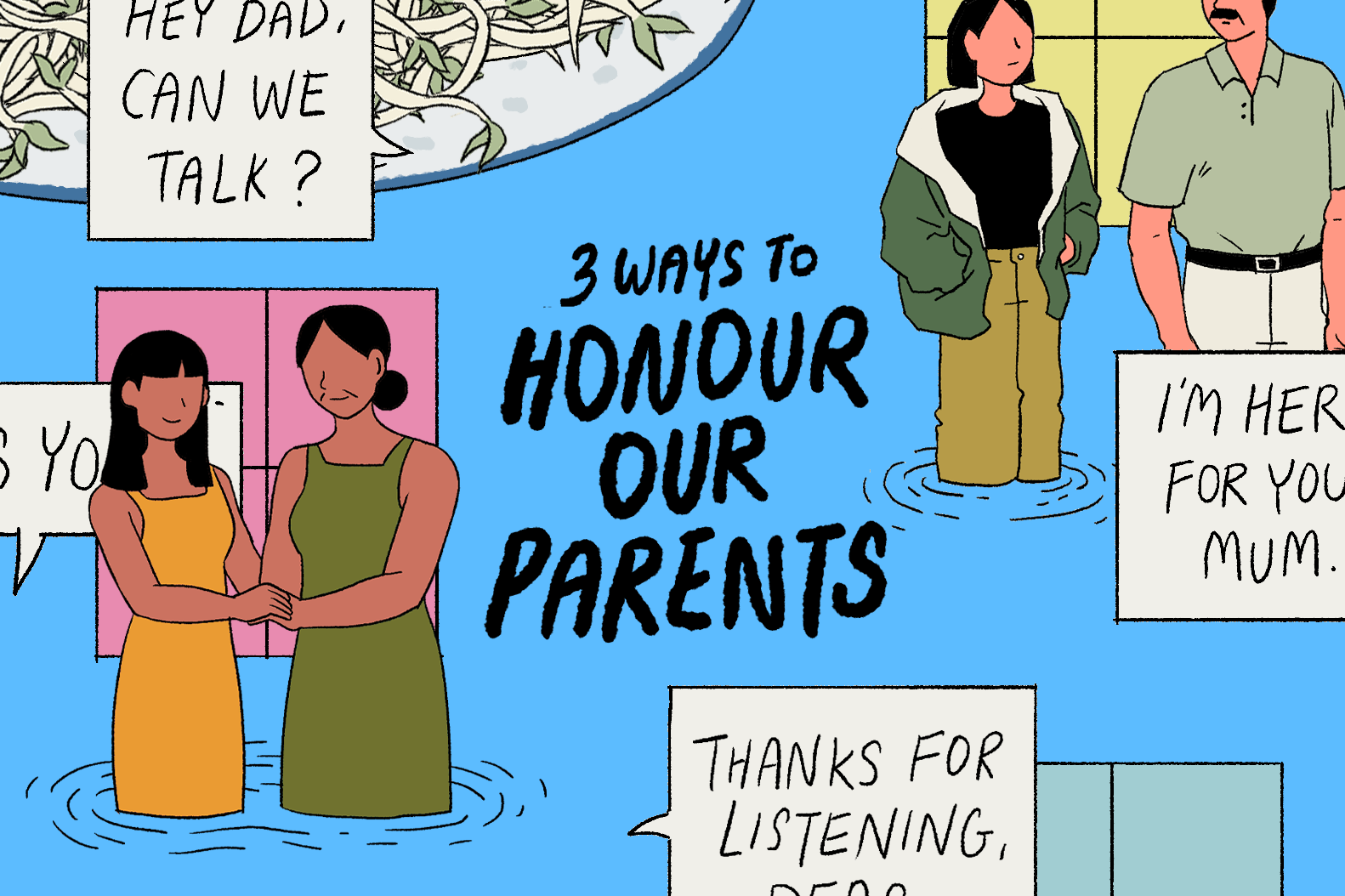I remember the time when my friend, Z, came out to me. He broached the topic very gingerly, almost like tip-toeing around a landmine.
After revealing that he was attracted to the same sex, Z studied my face intently, watching to see how I would react.
He asked: Was I disappointed? What would happen to our friendship now? Could I still love him for who he is?
Yes, I was upset – not because of what Z had just told me, but because he waited so long to tell me. Upset because he had to suffer silently all these years by himself, worrying if I would be able to accept him once he was honest.
Was there anything I might have said or did that might have given him that impression? I couldn’t imagine how tough it must have been to bear all of that alone.

More than a decade has passed since that fateful day, and we’re still friends.
Z is someone whom I really enjoy spending time with. We share about our struggles and successes; we laugh over funny things that happened to either of us; we encourage one another in our difficult times. I’m so glad all that hasn’t changed.
But we’ve also had conversations on his hopes and dreams. In them, I hear Z’s desire to find love the way I’ve found love in my husband. I hear Z’s doubt that he would have such affections, but not have the freedom to pursue them.
I’ve definitely felt torn.
Surely, the strength of our friendship triumphs over sexual orientation.
I believe that identity is defined by so much more than sexuality. And because of that, I don’t believe that only by pursuing all our sexual desires can one be truly satisfied.
However, I’ve never thought of walking away from Z. Do our different beliefs have to divide us? Surely, the strength of our friendship triumphs over sexual orientation.
My heart aches for those who are unable to talk about their same-sex attraction or who find themselves rejected by their loved ones when they do. No one should be without community.

That’s why when I read statements like how “relationships should be built on love, not fear and secrecy” and the need to “accept and respect your LGBTQ friends and family”, I agree – because I’ve seen how the God whom I love welcomes all to come to Him.
In the Bible, God was compassionate to the marginalised: the foreigners, the widows, the orphans, the poor (Deuteronomy 10:18). Many times His anger was directed towards those who didn’t look out for them or, worse, aggravated their circumstances (Jeremiah 22:16-17).
Jesus Christ Himself loved and ministered to those on the sidelines of society: the man who had been paralysed for 38 years (John 5:1-15), the woman caught in the act of adultery (John 8:3-11), the tax collector who was dishonest (Luke 19:1-9)… so much so that people asked: “Why does he eat with tax collectors and sinners?” (Mark 2:15-16)
But scripture is also consistent on God’s design for sex between man and woman (Genesis 2:24, Romans 1:26-27), and that’s the reason why followers of Christ hold fast to that conviction.
And yet it’s important to note that the two greatest commandments for Christians are: love the Lord your God with all your heart, soul and mind, and love your neighbour as yourself (Matthew 22:34-40).
While we love God by obeying what He commands (John 14:15), we remember our other mandate: to love others.
The question is then: What does it mean to love?
There are so many ways to show love.
There’s a call going around for us to light up Singapore in pink to foster love and understanding among family and friends.
Those are great values to embrace. But let’s also be clear what we might end up inadvertently standing for when we throw our weight behind any movement.
Are we being asked to simply love our family and friends, or are we being asked to support a particular expression of love?
Among the requests that have been made by the organisers behind the initiative are for schools to review their sexuality education programmes and to remove the censorship of LGBTQ content in mainstream media.
It’s one thing to be against discrimination; it’s another thing to affirm a way of life that contradicts my views on marriage and family.
I respect that my friends have their own beliefs, just as I hope they respect mine. And I’m certain that I can continue loving them although I might not agree with all of their choices.
Even if my advice is not heeded, I’d be there to journey with them. Even if I don’t think it’s a good move, I’d stand by them no matter what decision they make.
To me, love is reaching out to be a listening ear; love is making time for a meal together; love is offering help even when it is costly…
Love is the giving of yourself – the ultimate demonstration of that being God who sent His Son, Jesus, to die on the Cross for all, so that we can freely enter into a relationship with Him and enjoy a new identity as His child (John 3:16, John 15:13).
Bottom line is: There are so many ways to show love.
I hope my friends with same-sex attraction already know how much I love them through how I’ve treated them over the years.
Because if I have to show them that they are loved by lighting up my home in pink, then I would have truly failed as a friend.
*The writer’s name has been changed for confidentiality.
- What does it mean to love someone even when you hold different views?
- How can you share your beliefs in a loving way?
- What does it mean to support a friend even when you can’t affirm all of their choices?









